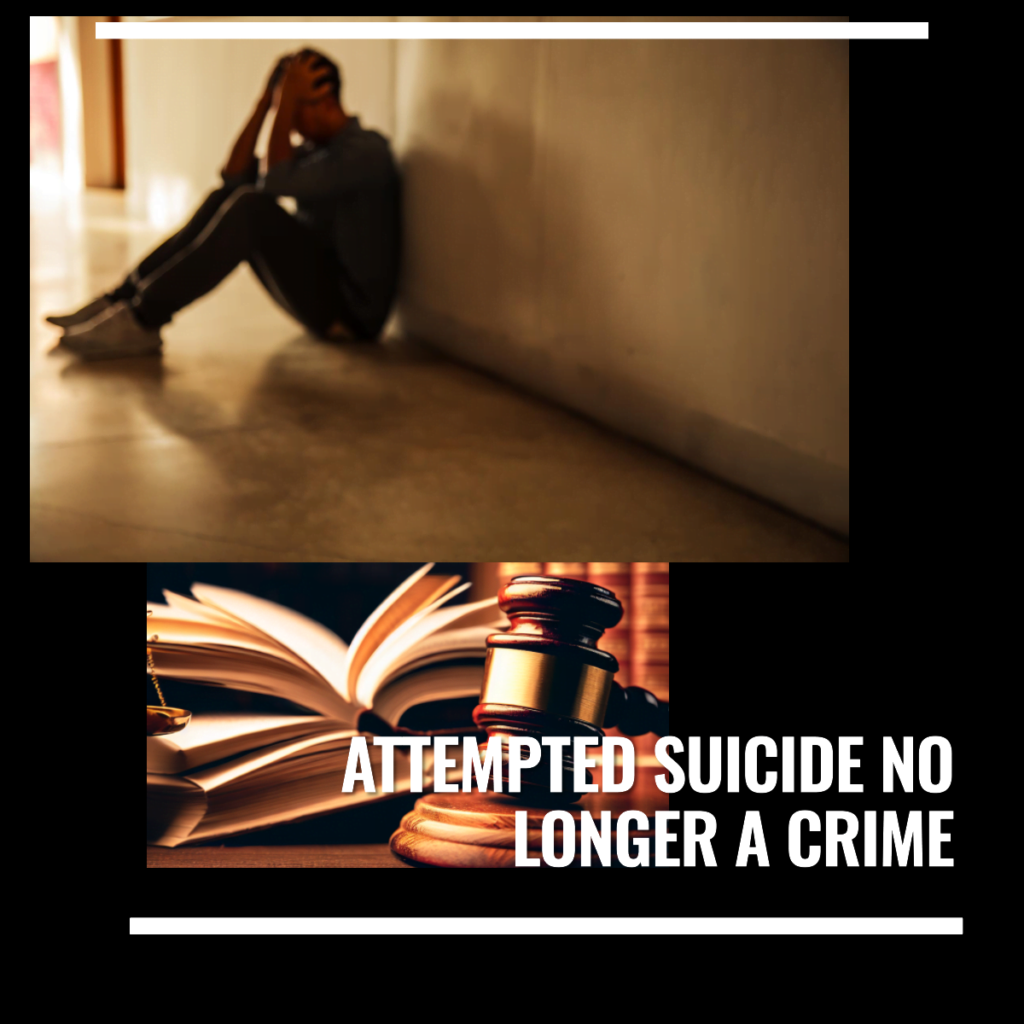
Attempted Suicide No Longer a Crime: In a groundbreaking legal judgment, the Supreme Court of India, in the case of P. Rathinam vs. Union of India on April 26, 1994, addressed the validity of Section 309 of the Indian Penal Code (IPC), which criminalized the attempt to commit suicide. The court examined whether this section violated Articles 14 and 21 of the Indian Constitution.
The Verdict: Section 309 (punishment for Attempted Suicide) Declared Unconstitutional
The court’s verdict was clear and decisive. It declared Section 309 of the IPC void on the grounds that it was cruel and irrational. The judgment highlighted the potential for double punishment, as individuals who had already endured immense mental anguish and attempted suicide could face further legal consequences. The court emphasized that the act of suicide did not contravene religious, moral, or public policy principles, Moreover, it did not cause harm to others.
A Move Towards Humanizing Penal Laws in Attempted Suicide
The court’s decision was a significant step in humanizing penal laws in India. By decriminalizing attempted suicide. The court recognized the need to protect the rights of individuals who had already endured immense suffering. This legal shift aligns Indian law with global standards, demonstrating a progressive approach to issues of personal liberty.
Championing the Right to Life and Personal Liberty
The Supreme Court’s decision significantly reinforces the paramount importance of Article 21 of the Indian Constitution, which firmly enshrines the right to life and personal liberty. By striking down Section 309, the court effectively prioritized an individual’s right to make choices about their own life and well-being, all without the looming fear of legal repercussions.
Impact on Mental Health and Well-being in Attempted Suicide Case
This groundbreaking legal ruling holds deep implications for mental health and well-being in India. Importantly, it conveys a potent message that individuals grappling with emotional distress can now actively seek support and assistance. All while being free from the looming threat of criminal charges. Consequently, it promotes a more compassionate and understanding approach for those dealing with mental health issues.
A Progressive Approach to Legal Reform
The judgment in the case of P. Rathinam vs. Union of India exemplifies India’s resolute commitment to evolving and adapting its legal framework in response to the shifting needs and values of society. It undeniably reflects an increasingly widespread recognition of the paramount importance of compassion and support for individuals grappling with personal crises.
P.Rathinam vs Union Of India on 26 April, 1994 Equivalent citations: 1994 AIR 1844, 1994 SCC (3) 394
Facts: Appellants assailed Validity of section 309, IPC, being violative of Articles 14 and 21 of Constitution. They prayed to declare section as void.
Issue: Whether attempt to commit suicide is illegal and against public policy?
It is held by the Supreme Court that section 309, IPC deserves to be effaced from the statute book to humanize our penal laws. It is cruel and irrational provision, It may result in punishing a person again (doubly) who has suffered agony. And would be undergoing ignominy because of his failure to commit suicide. Act of suicide cannot be said to be against religion, morality or public policy, and an act of attempted suicide has not baneful effect on society. Further, suicide or attempt to commit causes no harm to others. Because of which State’s interference with the personal liberty of the concerned persons is not called for. Section 309 violates Article 21, and so, it is void. Court allowed the writ petitions by declaring section 309 of the Penal Code as unconstitutional and hence void.
In Conclusion
The Supreme Court’s decision to decriminalize attempted suicide in India is a momentous legal milestone. It steadfastly upholds the principles of personal liberty, human rights, and compassion. This visionary legal reform not only aligns India’s penal laws with international standards but also sets the stage for a more empathetic and progressive legal system.



Leave a Reply